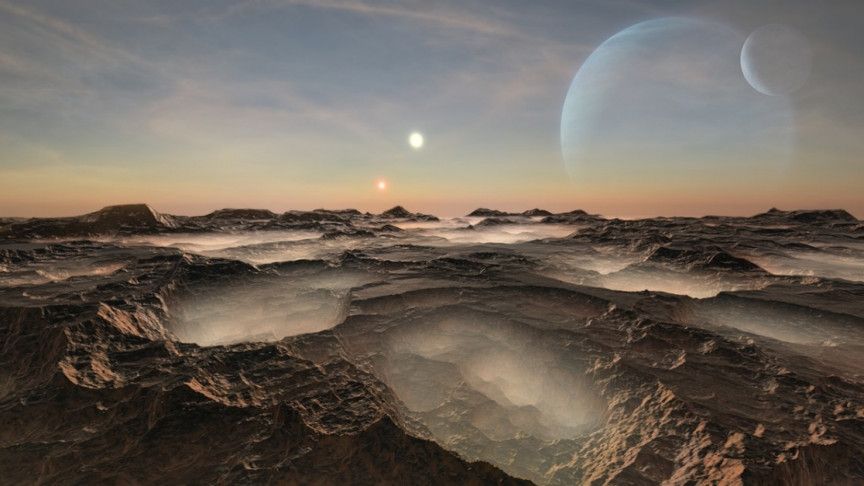Water is ‘Common’ on Alien Worlds, Scientists Say
Listen to “E199 Water is ‘Common’ on Alien Worlds, Scientists Say” on Spreaker.
Article by Andrew Griffen December 11, 2019 (independent.co.uk)
• The Institute of Astronomy at Cambridge, England recently completed the most extensive survey of the chemical compositions of exoplanets ever conducted. They found that water was “common” across many of those exoplanets. But they also discovered that there was less of it on those planets than expected, and there was great variety between the different kinds of worlds. Said project leader Dr. Nikku Madhusudhan, “We are seeing the first signs of chemical patterns in extra-terrestrial worlds, and we’re seeing just how diverse they can be in terms of their chemical compositions.”
• Water is thought to be a key component of extraterrestrial life, and so finding it elsewhere in the universe is key to discovering life elsewhere in the universe. The researchers used data from 19 exoplanets to get detailed measurements of the chemical and thermal properties. They looked at a wide variety of different worlds, from relatively small “mini-Neptunes” that are 10 times bigger than our Earth to “super-Jupiters” that are as big as 600 times the Earth.
• The theory is that when our solar system was forming, the gravity of the high carbon content in giant planets pulled in ice and other hydrogen particles to form water reserves. If this holds true for giant exoplanets, they should also hold large amounts of water.
• Using data from a huge array of different space and ground telescopes, researchers found water vapour present in 14 of the 19 planets, along with an abundance of sodium and potassium in six planets. But they also found less oxygen relative to other elements. So they may not contain significant amounts of ice.
• Luis Welbanks, lead author of the study, said, “Measuring the abundances of these chemicals in exoplanetary atmospheres is something extraordinary, considering that we have not been able to do the same for giant planets in our solar system yet, including Jupiter, our nearest gas giant neighbor.”
• Says project leader Dr. Madhusudhan, “Given that water is a key ingredient to our notion of habitability on Earth, it is important to know how much water can be found in planetary systems beyond our own.”
• [Editor’s Note] With the recent news of Navy patents on anti-gravity propulsion and zero-point energy, and the declassification of government ‘secret space programs’, deep state institutions such as Cambridge University are pouring on the “scientific studies” of the potential habitability of distant exoplanets as a distraction from the soon-to-be-disclosed reality that virtually every star in the galaxy has a habitable planet with intelligent life.
Water is “common” on alien worlds, scientists have found in a study that could change our understanding of how planets form and where we might find alien life.
The discovery comes from the most extensive survey of the chemical compositions of planets ever conducted, and challenges our search for water in our own solar system and elsewhere.


Water is thought to be a key component of extraterrestrial life, and so finding it elsewhere in the universe is likely to be central to discovering whether aliens exist elsewhere in the universe.
The researchers used data from 19 exoplanets to get detailed measurements of the chemical and thermal properties of exoplanets. They looked at a wide variety of different worlds, from relatively small “mini-Neptunes” only 10 times bigger than our Earth to “super-Jupiters” that are as big as 600 of our own planet, and from places that are between 20C and 2000C.
They found that water was “common” across many of those exoplanets. But they also discovered that there was less of it on those planets than expected, and there was great variety between the different kinds of worlds.
“We are seeing the first signs of chemical patterns in extra-terrestrial worlds, and we’re seeing just how diverse they can be in terms of their chemical compositions,” said project leader Dr Nikku Madhusudhan from the Institute of Astronomy at Cambridge.
FAIR USE NOTICE: This page contains copyrighted material the use of which has not been specifically authorized by the copyright owner. ExoNews.org distributes this material for the purpose of news reporting, educational research, comment and criticism, constituting Fair Use under 17 U.S.C § 107. Please contact the Editor at ExoNews with any copyright issue.
